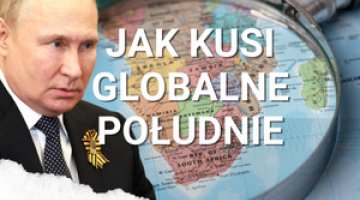Wintershall Dea withdraws from Russia
On 17 January, Wintershall Dea announced its decision to completely withdraw from its business operations in Russia. The company will deconsolidate its assets in the country and take a one-time write-down of €5.3 billion in its settlement for the fourth quarter of 2022 as a result. The statement said that President Vladimir Putin’s successive decrees meant the “de facto expropriation” of Wintershall Dea’s Russian assets; it claimed the decrees had deprived the German conglomerate of any influence over them by retroactively depriving the company of its earned income and depriving it of its voting rights in those companies within Russia where it had a stake. The statements by CEO Mario Mehren further indicate that the company had no longer received the dividends from its profits as of February 2022, and in autumn it lost access to its accounts, which contained €2 billion. The German media have speculated that Gazprom may eventually take over the company’s Russian assets. According to reports there, the company is considering taking advantage of the loan guarantees of €1.8 billion which the German government provided it for its investments in Russia.
Wintershall Dea is primarily engaged in oil and gas production. It has stakes in three joint ventures in Russia: Achimgaz (50% each jointly with Gazprom), Severneftegazprom (of which WD holds 35%, Gazprom 40% and Austria’s OMV 25%) and Achim Development (25%; the rest is in the hands of Gazprom), through which it operates in the Siberian Urengoy and Yuzhno-Russkoye fields. In addition to its core in Russia, the corporation produces natural gas and oil in 12 other countries (including Germany, Norway, Argentina, Mexico and Egypt: see table). It also holds stakes in gas infrastructure (including strategic assets in Germany which it co-owned with Gazprom and Gazprom Germany), Nord Stream AG (15.5%) and WIGA Transport Beteiligungs-GmbH (50.02%), which owns the operators of the natural gas transmission network in Germany: Gascade, NEL Gastransport and OPAL Gastransport. The company also provided a €950 million loan for the construction of Russia’s Nord Stream 2 project (which was fully entered as a loss in 2022).
Wintershall Dea’s main shareholder (72.7%) is the German chemical conglomerate BASF. The rest is owned by the LetterOne fund, nearly half of which is held by the Russian oligarchs Mikhail Fridman and Piotr Aven. After being subjected to Western sanctions over the war in Ukraine, they resigned from the fund’s board of directors and their assets were frozen.
Commentary
- Despite the outbreak of the war in Ukraine, Wintershall Dea rejected the option of withdrawing from business in Russia for many months. In response to the aggression, the company merely halted its new joint projects with Gazprom and denounced Moscow’s policies verbally. While its failure to take more decisive steps was met with incomprehension and harsh criticism by most of the media, it was in keeping with Berlin’s course of not severing its gas ties and not provoking the Kremlin to disrupt gas supplies to Germany. The company only took the decision to withdraw from the Russian market after these conditions changed (Gazprom halted exports to Germany last summer), and that for purely business reasons – after the corporation was completely stripped of control over its Russian assets.
- Among German oil and gas entities, Wintershall Dea is (next to Uniper) the biggest symbol of the close ties that existed until recently between German and Russian companies in the energy field – and now, of the collapse of this business model after 24 February last year. The corporation began operating in Russia in the 1990s, and quickly became one of Gazprom’s most important partners in Europe, a company which allowed it to steadily expand its influence over the gas sector in Germany. Wintershall Dea was also involved in most of the high-profile German-Russian energy projects (led by the Nord Stream 1 and 2 pipelines). It was also behind the high-profile 2015 asset swap, after which it received stakes in the Urengoy field in western Siberia, while Gazprom received stakes in two German gas storage facilities, including the largest, in Rehden. Its chairman Mario Mehren was regarded as one of the key promoters of cooperation between Berlin and Moscow before the war, including challenging the Western sanctions targeting Russia. He was also among the German executives who had had regular audiences with Putin.
- Moscow’s actions against the corporation can be read as retaliation for last year’s nationalisation of Russian gas assets in Germany. In response to the energy crisis in the spring of 2022, Berlin first decided to take control of Gazprom Germania and then, in the autumn, to nationalise it completely (see ‘Germany: nationalisation of Gazprom’s gas assets’). With this move, it regained control of the country’s strategic gas storage and transmission infrastructure, which had previously (thanks in part to asset swaps with Wintershall Dea) been in Gazprom’s hands, and was used to fuel the gas crisis in Europe.
- As a consequence of the withdrawal from Russian operations, the corporation is losing up to half of its existing production capacity and almost two-thirds of the gas reserves in its portfolio. In 2021 its Russian fields accounted for 53% of the company’s natural gas and 34% of its oil production (see table). The total financial losses incurred as a result of the decision are estimated at up to €7 billion (BASF took a €7.3 billion write-off on its balance sheet). Moreover, BASF had hoped to raise substantial funds for its own investments as part of Wintershall Dea’s planned pre-war flotation, but over the past year BASF’s shares have even sunk by more than half (from €15–18 billion to €6–8 billion).
- The loss of its Russian business is forcing the company to change its current business model. Wintershall Dea is primarily planning new investments in gas and oil production in the countries where it already holds licenses. For example, in 2022 it has started new projects in Norway, which will now play a key role in the company’s strategy, as well as in Mexico and Algeria. In addition, in the longer term it intends to invest funds in new areas of energy, in line with its policy of transformation and decarbonisation. One of the key fields of development will be carbon capture and storage (CCS): the company has been one of the main promoters and pioneers of this technology in Germany. In 2022 it acquired the first licenses to store CO2 under the bottom of the Norwegian part of the North Sea. It is also planning joint projects with Equinor in this area: one project is for a pipeline to transport industrially captured CO2 from Germany to Norway, where it would eventually be stored in undersea reservoirs. This venture is part of a political agreement between Berlin and Oslo (see ‘The German-Norwegian energy alliance’). It also wants to invest in the hydrogen sector, especially in the production of so-called blue hydrogen (extracted from natural gas using CCS).
Table. Wintershall Dea’s oil and gas production in 2021 [in thousands of barrels of oil equivalent (BOE)]
![Table. Wintershall Dea’s oil and gas production in 2021 [in thousands of barrels of oil equivalent (BOE)].](/sites/default/files/styles/max_325x325/public/inline-images/Table.%20Wintershall%20Dea%E2%80%99s%20oil%20and%20gas%20production%20in%20202.png?itok=VwxouADy)
Source: author’s own research, based on the company’s 2021 annual report.





